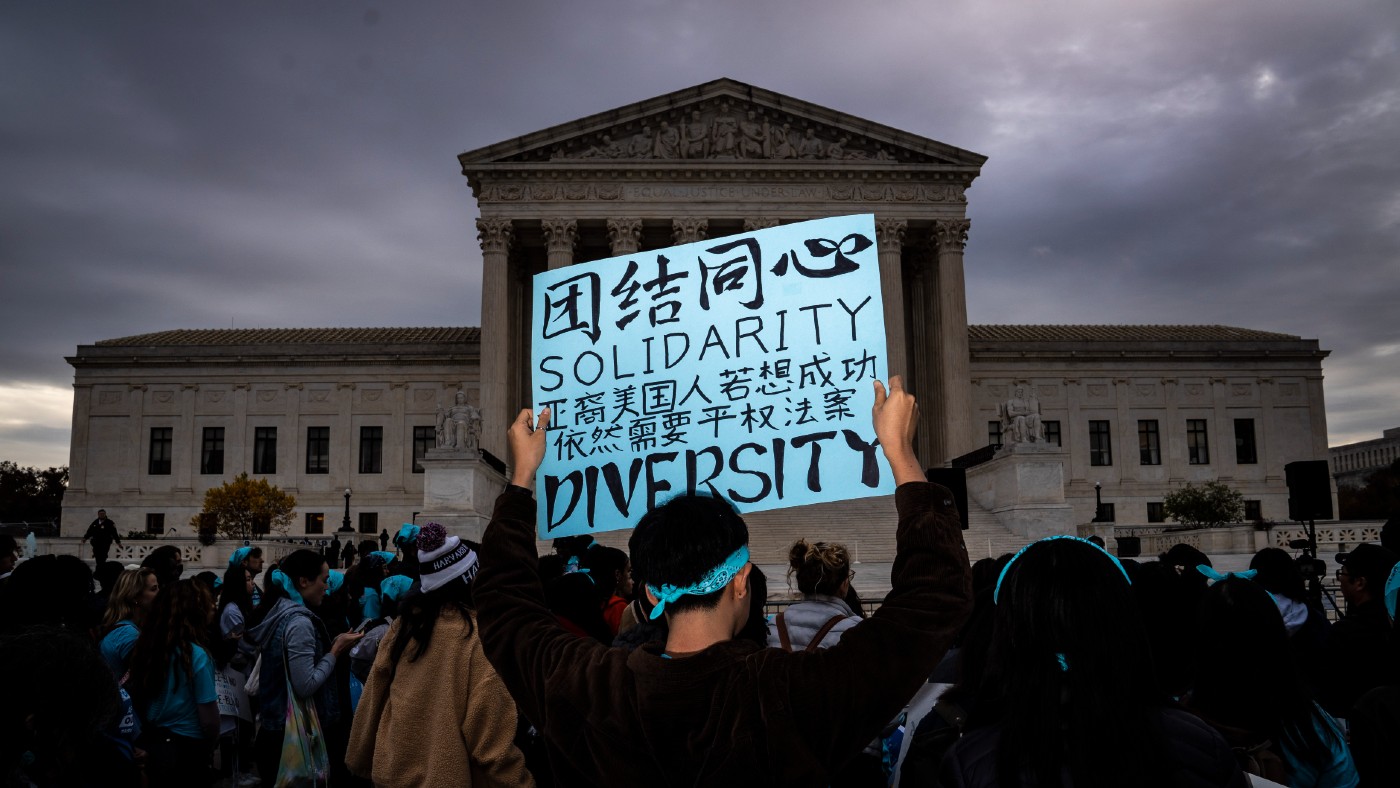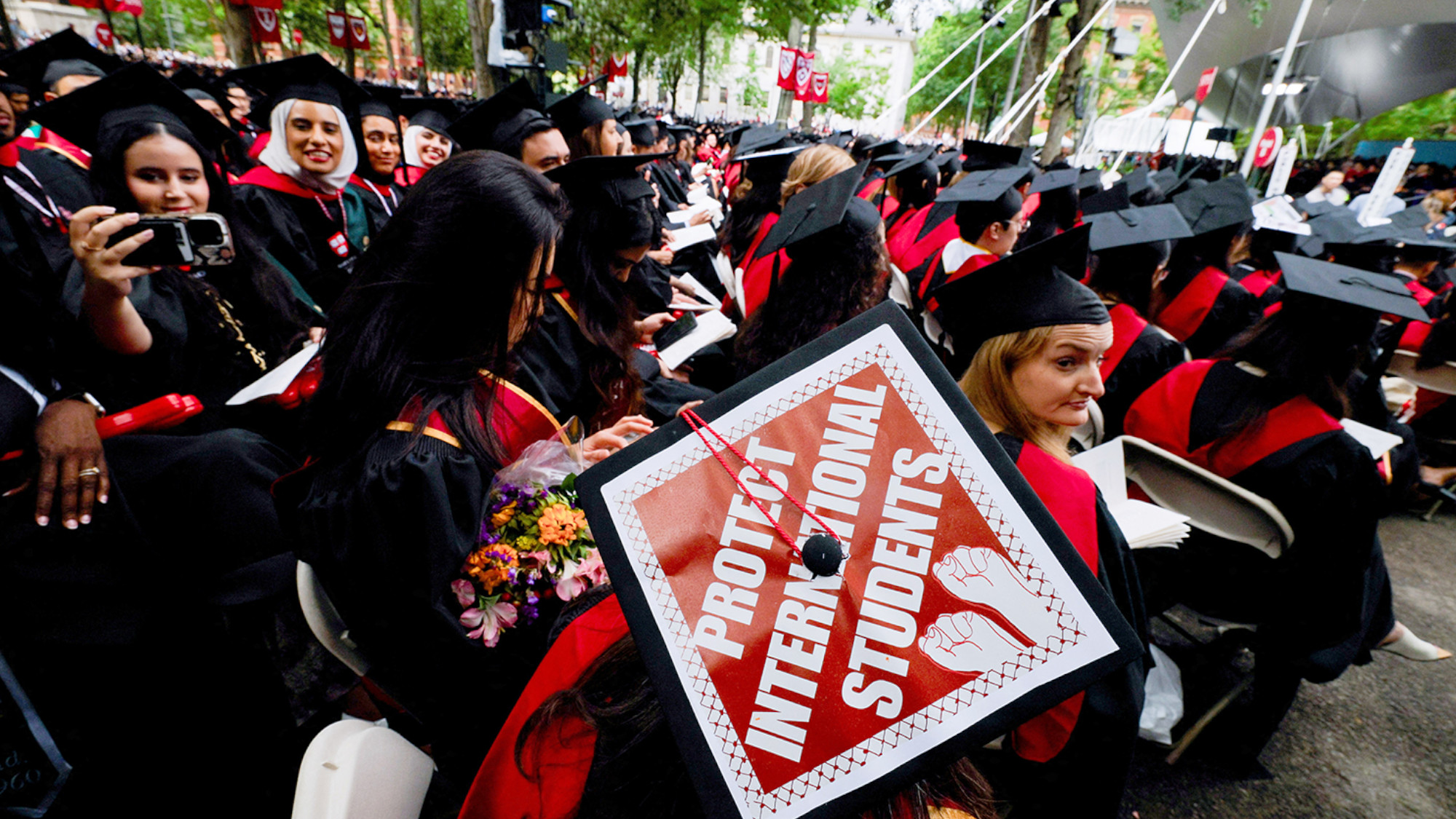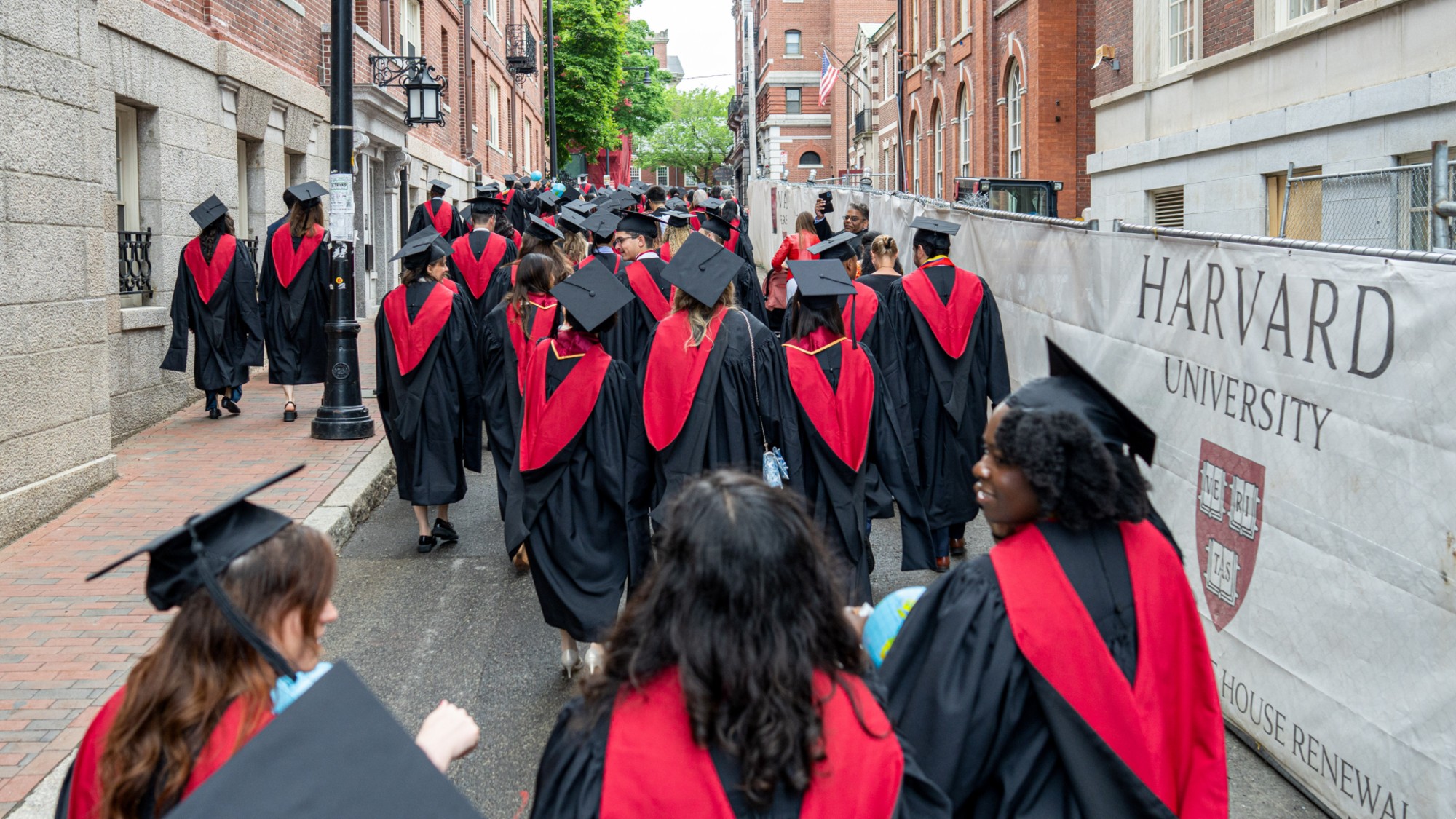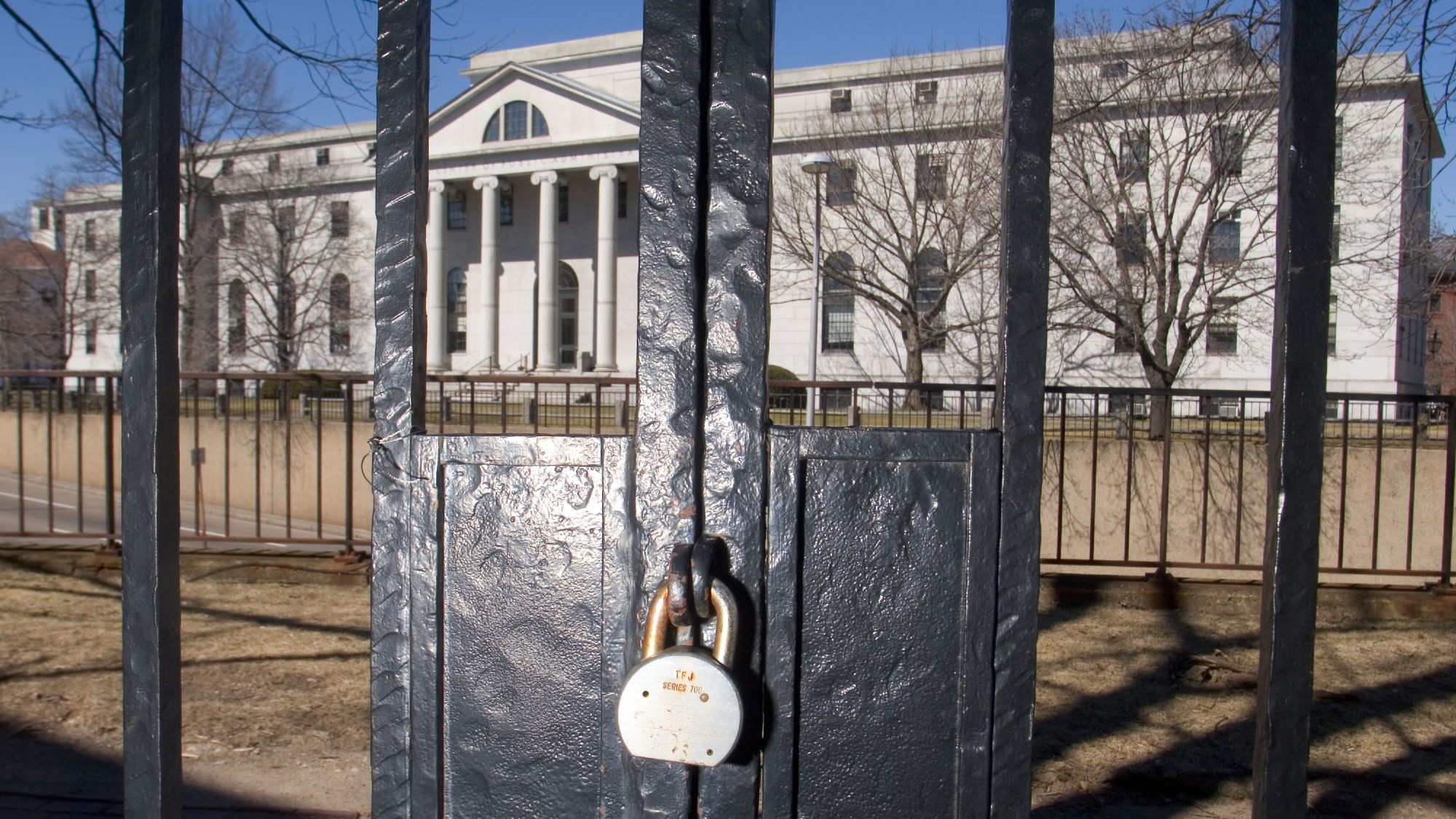Harvard University in firing line as Supreme Court weighs up affirmative action
Supreme Court seems set to overturn policy that has been part of US life since the 1970s

A free daily email with the biggest news stories of the day – and the best features from TheWeek.com
You are now subscribed
Your newsletter sign-up was successful
Get ready for another “national shockwave”, said Noah Feldman on Bloomberg. Back in June, the supreme court overturned Roe v. Wade, the landmark 1973 ruling that affirmed the constitutional right to an abortion. Now it seems set to overturn another key policy that has been part of US life since the 1970s: affirmative action.
Last week, the court heard arguments in a pair of lawsuits, one against Harvard University, the other against the University of North Carolina, brought by a group of Asian-American students led by conservative activist Edward Blum. They argue that colleges and universities should not be allowed to use race as a factor in deciding admission because it infringes civil rights legislation and is unconstitutional.
It matters not to this court, the most conservative in 90 years, that affirmative action practices have repeatedly been upheld in previous supreme court rulings. Judging from the sharply sceptical tone of the questions posed by its six (out of nine) conservative justices this week, it seems certain that affirmative action will join Roe in the dustbin of American history.
The Week
Escape your echo chamber. Get the facts behind the news, plus analysis from multiple perspectives.

Sign up for The Week's Free Newsletters
From our morning news briefing to a weekly Good News Newsletter, get the best of The Week delivered directly to your inbox.
From our morning news briefing to a weekly Good News Newsletter, get the best of The Week delivered directly to your inbox.
But does the court have any legal choice here, asked David French on The Dispatch; after all, the 1964 Civil Rights Act plainly bans discrimination “on the ground of race, colour, or national origin”.
The answer depends on what you think affirmative action is for, said Ross Douthat in The New York Times. The clearest moral case for it was as reparation to African Americans for centuries of enslavement. However, this does indeed conflict with most readings of the Civil Rights Act (and is the reason states such as Michigan and California have banned it for public institutions). A different justification has since emerged, however, which is less legally troublesome. This says that the aim of affirmative action is to achieve racial diversity within the student body, which means it can benefit any under-represented minority, not just African Americans.
But this presents a new set of problems, said Emma Green in The New Yorker. The group suing Harvard claims that the university is discriminating against Asian Americans, rating them lower in admission rankings on personal traits such as leadership and likeability in order to ensure they are not over-represented on campus.
They also question the genuineness of Harvard’s commitment to diversity, given that some 30% of the students it admits are “ALDCs” – athletes; legacies; relations of donors; children of faculty and staff. As the conservative justice Clarence Thomas intimated, affirmative action has become a way for institutions to achieve “a certain look”, and does “nothing for those too poor or uneducated to participate in higher education”.
A free daily email with the biggest news stories of the day – and the best features from TheWeek.com
But there is a good alternative, said Richard D. Kahlenberg in The Atlantic. If colleges started “zeroing in on economically disadvantaged students” they’d be on solid ground legally; and at the same time, given the shocking “wealth gap between black and white households”, they’d admit just as many students of colour. Colleges resist this solution only because lower-income students would require more financial assistance, unlike the “upper-middle-class students of colour” they disproportionately admit today.
-
 Why are election experts taking Trump’s midterm threats seriously?
Why are election experts taking Trump’s midterm threats seriously?IN THE SPOTLIGHT As the president muses about polling place deployments and a centralized electoral system aimed at one-party control, lawmakers are taking this administration at its word
-
 ‘Restaurateurs have become millionaires’
‘Restaurateurs have become millionaires’Instant Opinion Opinion, comment and editorials of the day
-
 Earth is rapidly approaching a ‘hothouse’ trajectory of warming
Earth is rapidly approaching a ‘hothouse’ trajectory of warmingThe explainer It may become impossible to fix
-
 Education: More Americans say college isn’t worth it
Education: More Americans say college isn’t worth itfeature College is costly and job prospects are vanishing
-
 School phone bans: Why they're spreading
School phone bans: Why they're spreadingFeature 17 states are imposing all-day phone bans in schools
-
 Schools: The return of a dreaded fitness test
Schools: The return of a dreaded fitness testFeature Donald Trump is bringing the Presidential Fitness Test back to classrooms nationwide
-
 Columbia: A justified surrender to Trump?
Columbia: A justified surrender to Trump?Feature Columbia agrees to a $221M settlement and new restrictions to restore federal funding
-
 Education: America First vs. foreign students
Education: America First vs. foreign studentsFeature Trump's war on Harvard escalates as he blocks foreign students from enrolling at the university
-
 Colleges are canceling affinity graduations amid DEI attacks but students are pressing on
Colleges are canceling affinity graduations amid DEI attacks but students are pressing onIn the Spotlight The commencement at Harvard University was in the news, but other colleges are also taking action
-
 Can Trump ban overseas students from US universities?
Can Trump ban overseas students from US universities?Today's Big Question President's decision to revoke Harvard's access to database for admitting international students 'drastically escalates' the dispute
-
 Education: Can public schools be religious?
Education: Can public schools be religious?Feature A Supreme Court seems ready to rule in favor of religious charter schools in Oklahoma, which could reshape public education